Saudi Arabia Cuts Ties With Iran After Tehran Embassy Attack
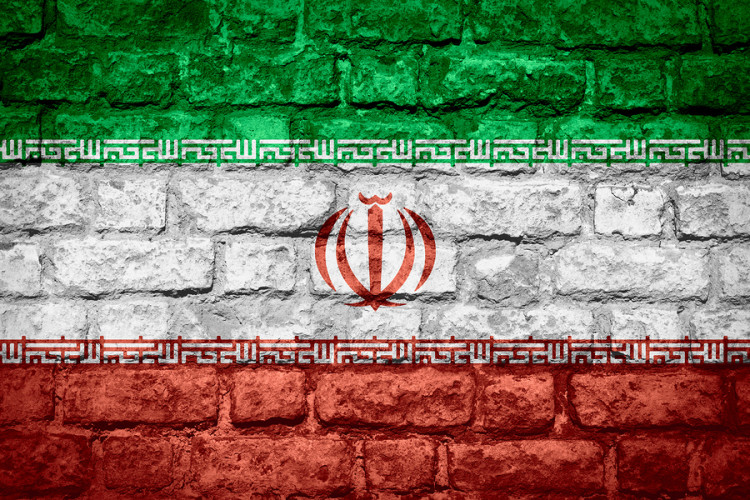
©2016 Bloomberg News
O0EKFH6TTDS0
O0EKFH6TTDS0
(Bloomberg) — In a significant escalation of tensions, Saudi Arabia cut ties with Iran and expelled the Islamic Republic’s diplomats, a day after its embassy in Tehran was attacked to protest the Saudis’ execution of a prominent Shiite cleric.
Iran’s ambassador in the kingdom has 48 hours to leave, Saudi Foreign Minister Adel al-Jubeir said late Sunday in Riyadh. “Saudi Arabia will no longer deal with a country that supports terrorism and sectarianism,” he said.
The move marks the biggest crisis in relations between the regional powers since the late 1980s, when the Sunni-led kingdom suspended ties with Shiite-ruled Iran after its embassy was attacked following the death of Iranian pilgrims during Hajj in Mecca. Saudi Arabia also supported Saddam Hussein’s Iraq against Iran during the first Gulf War.
Al-Jubeir announced the expulsion after Iranian protesters set the Saudi embassy on fire following the execution of Nimr al-Nimr, a critic of the kingdom’s treatment of its Shiite minority. He was one of 47 men executed for offenses that included terrorism and political activism.
“With cutting diplomatic ties, Saudi Arabia cannot cover up its big mistake for executing Sheikh Nimr,” Tasnim news agency quoted Iranian deputy foreign minister Hossein Amir-Abdollahian as saying. Ahead of the latest events, Saudi Arabia’s “ill- considered approaches had increased insecurity in the region, led to the growth of terrorism and extremism” and hurt its people, he said.
Iran’s ambassador in the kingdom has 48 hours to leave, Saudi Foreign Minister Adel al-Jubeir said late Sunday in Riyadh. “Saudi Arabia will no longer deal with a country that supports terrorism and sectarianism,” he said.
The move marks the biggest crisis in relations between the regional powers since the late 1980s, when the Sunni-led kingdom suspended ties with Shiite-ruled Iran after its embassy was attacked following the death of Iranian pilgrims during Hajj in Mecca. Saudi Arabia also supported Saddam Hussein’s Iraq against Iran during the first Gulf War.
Al-Jubeir announced the expulsion after Iranian protesters set the Saudi embassy on fire following the execution of Nimr al-Nimr, a critic of the kingdom’s treatment of its Shiite minority. He was one of 47 men executed for offenses that included terrorism and political activism.
“With cutting diplomatic ties, Saudi Arabia cannot cover up its big mistake for executing Sheikh Nimr,” Tasnim news agency quoted Iranian deputy foreign minister Hossein Amir-Abdollahian as saying. Ahead of the latest events, Saudi Arabia’s “ill- considered approaches had increased insecurity in the region, led to the growth of terrorism and extremism” and hurt its people, he said.
Broader Impact
The escalation probably will undermine already-stumbling efforts to end the war in Syria, where Saudi Arabia backs largely Sunni militants and Iran supports the regime of President Bashar al-Assad. The two OPEC members are also engaged in a proxy confrontation in Yemen, though Western diplomats have privately played down the extent of Iranian support of Shiite Houthi rebels.
“Let the second slap in the face of Iran be victory in Yemen and Syria,” Saudi political commentator Jamal Khashoggi, a former media adviser to Prince Turki al-Faisal, posted on Twitter. “This is a decisive confrontation.”
The tension hasn’t stopped a protracted slide in oil prices amid a global supply glut. Brent crude prices tumbled for a second year in 2015, falling 35 percent to $37.28 a barrel.
“Let the second slap in the face of Iran be victory in Yemen and Syria,” Saudi political commentator Jamal Khashoggi, a former media adviser to Prince Turki al-Faisal, posted on Twitter. “This is a decisive confrontation.”
The tension hasn’t stopped a protracted slide in oil prices amid a global supply glut. Brent crude prices tumbled for a second year in 2015, falling 35 percent to $37.28 a barrel.
Oil Futures
Futures rose as much as 3.5 percent in New York after the Saudi Arabia news, extending Thursday’s 1.2 percent advance. West Texas Intermediate for February delivery climbed as much as $1.28 to $38.32 a barrel on the New York Mercantile Exchange and was at $37.92 at 8 a.m. Hong Kong time. Saudi Arabia is the biggest member by output in the Organization of Petroleum Exporting Countries, while Iran is the fifth-largest in the group.
The crisis may cause a short-term price spike of $1 to $3 a barrel in an oversupplied market, said John Auers, executive vice president at Turner, Mason & Co. in Dallas. He said he doubts it will change Saudi Arabia’s longer-term posture of overproducing crude to depress global prices, harming Iran as it moves to increase its own output.
“Things like this can escalate pretty quickly, but my gut feeling is that the Saudis and the Iranians won’t let it affect the market too much,” Auers said by telephone.
The crisis may cause a short-term price spike of $1 to $3 a barrel in an oversupplied market, said John Auers, executive vice president at Turner, Mason & Co. in Dallas. He said he doubts it will change Saudi Arabia’s longer-term posture of overproducing crude to depress global prices, harming Iran as it moves to increase its own output.
“Things like this can escalate pretty quickly, but my gut feeling is that the Saudis and the Iranians won’t let it affect the market too much,” Auers said by telephone.
Divine Hand
Saudi police were attacked in an eastern province of the country, with one civilian killed, the official Saudi Press Agency reported, citing an unidentified police spokesman. The eastern area is populated by the Shiite minority.
Following al-Nimr’s death but before the Saudis severed ties, Iran’s Supreme Leader Ayatollah Ali Khamenei said Saudi rulers would face unspecified repercussions.
“The divine hand of revenge will take the Saudi politicians by the throat,” Khamenei, Iran’s highest authority, said on Sunday. al-Nimr “was neither encouraging people to armed protests, nor plotting secretly. All he did was to openly criticize,” said Khamenei, who frequently lashes out at Saudi rulers.
In a statement, United Nations High Commissioner for Human Rights Zeid Ra’ad al-Hussein said al-Nimr’s execution was a “disturbing development.”
International law only permits the death penalty in cases where the crimes committed are considered ”most serious,” he said. Human rights bodies have consistently defined those as being “being restricted to murder and other forms of intentional killing.”
Following al-Nimr’s death but before the Saudis severed ties, Iran’s Supreme Leader Ayatollah Ali Khamenei said Saudi rulers would face unspecified repercussions.
“The divine hand of revenge will take the Saudi politicians by the throat,” Khamenei, Iran’s highest authority, said on Sunday. al-Nimr “was neither encouraging people to armed protests, nor plotting secretly. All he did was to openly criticize,” said Khamenei, who frequently lashes out at Saudi rulers.
In a statement, United Nations High Commissioner for Human Rights Zeid Ra’ad al-Hussein said al-Nimr’s execution was a “disturbing development.”
International law only permits the death penalty in cases where the crimes committed are considered ”most serious,” he said. Human rights bodies have consistently defined those as being “being restricted to murder and other forms of intentional killing.”
U.S. Role
The administration of President Barack Obama was criticized by Gulf Arab monarchies during the talks that led to Iran’s nuclear agreement with world powers, as well as for the U.S.’s perceived support of a greater Iranian role in the Middle East.
“The breaking of diplomatic relations is not the issue, that’s just the latest shoe to drop,” said Aaron David Miller, a vice president at the Woodrow Wilson International Center for Scholars in Washington. “So this is going to make a chaotic and dysfunctional situation even worse,” Miller said. “Whether it will come to armed conflict in the Gulf for example, it’s hard to say. I doubt it, but I wouldn’t rule it out.”
Under King Salman, who ascended to the throne in January last year, Saudi Arabia has adopted a more assertive foreign policy. In March, the kingdom assembled a coalition of mainly Sunni-ruled nations to bomb Shiite rebels in Yemen.
“We believe that diplomatic engagement and direct conversations remain essential in working through differences and we will continue to urge leaders across the region to take affirmative steps to calm tensions, ” U.S. State Department spokesman John Kirby said of the Saudi decision.
“The breaking of diplomatic relations is not the issue, that’s just the latest shoe to drop,” said Aaron David Miller, a vice president at the Woodrow Wilson International Center for Scholars in Washington. “So this is going to make a chaotic and dysfunctional situation even worse,” Miller said. “Whether it will come to armed conflict in the Gulf for example, it’s hard to say. I doubt it, but I wouldn’t rule it out.”
Under King Salman, who ascended to the throne in January last year, Saudi Arabia has adopted a more assertive foreign policy. In March, the kingdom assembled a coalition of mainly Sunni-ruled nations to bomb Shiite rebels in Yemen.
“We believe that diplomatic engagement and direct conversations remain essential in working through differences and we will continue to urge leaders across the region to take affirmative steps to calm tensions, ” U.S. State Department spokesman John Kirby said of the Saudi decision.
–With assistance from Kasia Klimasinska, Kambiz Foroohar, James Nash and Ben Sharples.
To contact the reporters on this story: Zaid Sabah in Washington at zalhamid@bloomberg.net; Deema Almashabi in Riyadh at dalmashabi@bloomberg.net To contact the editors responsible for this story: Alaa Shahine at asalha@bloomberg.net; Rosalind Mathieson at rmathieson3@bloomberg.net Bernard Kohn


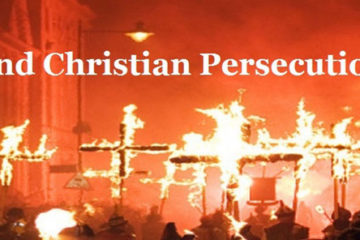
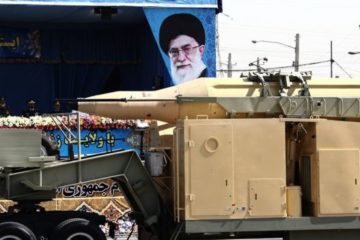
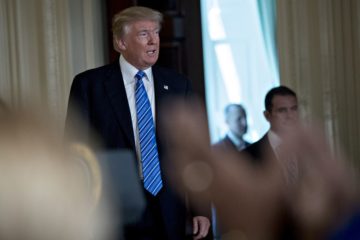
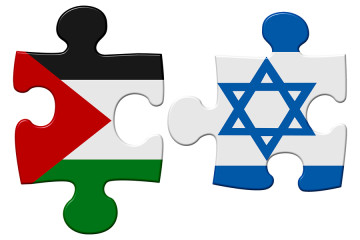

No Comment